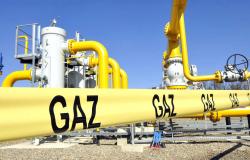OTTAWA — American troops will spend more time training in the High North, the new commander of the North American Aerospace Defense Command (known as NORAD) said, a strategy that goes hand in hand with Canadian Arctic defense ambitions.
American General Gregory Guillot took command of NORAD in February. His first mission: a 90-day assessment of NORAD capabilities, which includes visits to Canada.
During a stop in Ottawa in mid-April, Mr. Guillot presented his plans to ensure that NORAD is more mobile in the North and better equipped to face its harsh climate.
“On the American side (there are) a lot of competent forces that have never been there. My objective is therefore to bring them there to train,” he explained in an interview.
Mr. Guillot said his discussion with Vice-Admiral Bob Auchterlonie, commander of Canadian Joint Operations Command, was “very enlightening” in understanding which parts of Canada’s vast North are accessible by road, water or the way of the air.
“The challenge in the Arctic, from my point of view, is to guarantee our freedom of movement,” he said.
The Arctic is an area of particular concern for NORAD, responsible for defending North American airspace.
This became clear in January 2023, when a high-altitude surveillance balloon from China was detected in Alaskan airspace. Over the next few days, NORAD tracked the balloon as it flew over Canada and the United States to off the coast of South Carolina, where it was shot down by American warplanes.
The discovery of several more unidentified objects flying over North America in early 2023 has led NORAD to reconfigure its detection systems as an interim measure while new radars are in preparation.
Canada and the United States have committed to creating an over-the-horizon radar network for the Arctic. On the Canadian side, the system should be operational by 2028 and maximized by 2032.
This commitment is part of a $38.6 billion, 20-year NORAD modernization program announced by the Liberal government in 2022. The projects also include the construction of airfields and landing strips for a fleet of aircraft F-35 combat aircraft.
Mr. Guillot said he wanted to bring these deadlines forward as much as possible. He went on to say that NORAD was looking beyond the continent to detect threats over the Arctic.
“We are now looking to NATO (North Atlantic Treaty Organization) and other groups to see if we can build a network to get this awareness more quickly,” he said. The membership of Sweden and Finland in NATO makes this easier, he acknowledges.
‘Difficult conversations’ about spending
Gregory Guillot made headlines in Canada last July after an exchange he had with a Republican senator during his confirmation hearings.
Dan Sullivan raised the issue of Canada’s spending in NATO, saying the country is “not even close to doing its part” and asked Mr. Guillot if he would commit “to having these difficult conversations” with Canadian officials once he took command. Mr. Guillot said he would do it.
But when asked about these conversations, Mr. Guillot was quick to point out that he was only responding to Mr. Sullivan’s question.
“I said ‘yes’ because I think with all of our partners we are going to have to have difficult discussions about resources, capabilities and priorities. I was not only targeting Canada or another country,” he clarified.
He welcomed the federal government’s planned increase in defense spending – to $8.1 billion over the next few years and an additional $73 billion over 20 years – and said he was “very encouraged” by the recent update of the country’s defense policy.
Priority on Arctic sovereignty
This document, entitled “Our North, Strong and Free,” makes clear that Arctic sovereignty is an urgent priority for the Canadian Armed Forces.
Among the promised improvements: a new satellite earth station in the Arctic, operational support centers that will allow a year-round military presence in the North, surveillance aircraft and all-terrain vehicles capable of driving on ice and in the tundra.
Mr. Guillot has “no doubt” that Canada demonstrates the necessary seriousness in matters of defense.
He plans to present the results of his evaluation to Canadian and American authorities next month.






